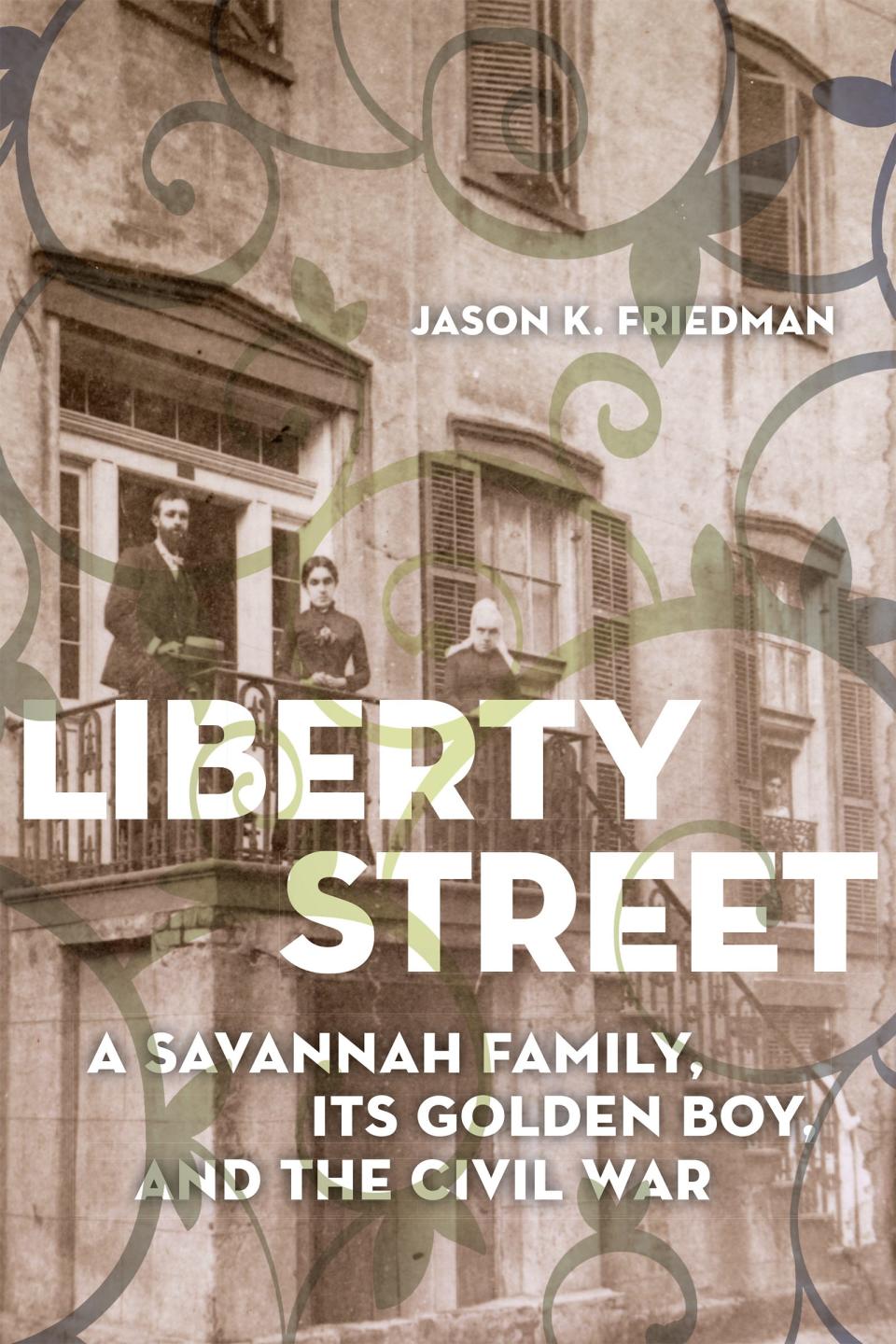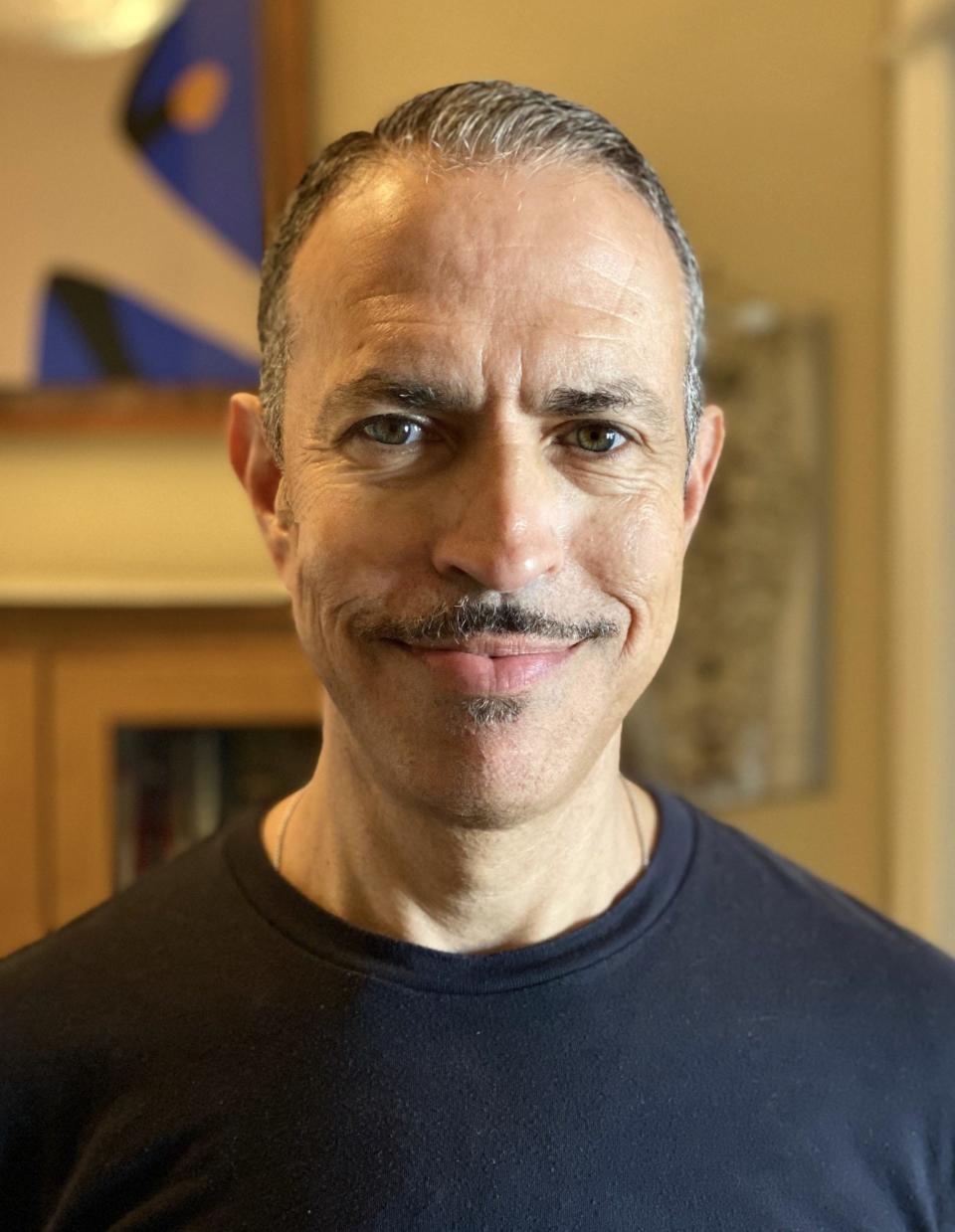Savannah native returns to discuss his book and research into the Solomon Cohen house
- Oops!Something went wrong.Please try again later.
Imagine, living in San Francisco, finding a great deal on a place in downtown Savannah, and under the sway of a savvy yet cautious local Realtor, buying it, sight-unseen. Then, aside from needing a coat or two of paint and minor repairs, you discover your historical purchase holds clues about the antebellum goings-on of a prominent Jewish family. Chasing down long-forgotten details, you find a story rife with contradictions that carry through the Civil War.
Writer and Savannah native Jason K. Friedman stumbled upon such intrigue in 2016 when he and his husband purchased a historic, first-floor flat within the Solomon Cohen house on Liberty Street.
Friedman returns to the Hostess City, May 3, to speak with acclaimed author Jonathan Rabb about his latest book “Liberty Street: A Savannah Family, Its Golden Boy, and the Civil War.” The conversation takes place at 6:15 p.m. at the Starland location of E. Shaver, 1921 Bull St. The event is free, though attendees must RSVP online.

Friedman, who spent his formative years in Savannah before venturing to Yale and Johns Hopkins Universities, grew up among the city’s Jewish community with an affinity for local history. Glimpsing the condo online with its original Jewish builder’s name asserted as important commodity, he was amused yet sincerely interested.
“When I saw the listing, I got a kick out of the fact that someone thought a house named after a Jew was a selling point,” chuckled Friedman, who is himself Jewish. “I mean, there’s the Davenport House, Green-Meldrim, and Owens-Thomas. These are the typical names of famous mansions in Savannah. I had never heard of the Solomon Cohen House.”
Built a decade after the end of the Civil War, the four-level home at 116 W. Liberty St., now cordoned into condos, boasts heart pine floors and fireplaces throughout, while its austere stucco façade and shutterless windows convey the building is not giving up secrets easily.
Who was Solomon Cohen?
Given the long history of Jews in Savannah, it follows that they would establish themselves, create businesses, and build homes here.
Just a few months after Oglethorpe founded the city, a ship of 42 Jews arrived in search of religious freedom and new opportunities. A physician on board proved invaluable in helping stave a yellow fever outbreak among the new colonists. In 1735, the group established Congregation Mickve Isreal, the first synagogue in Georgia and third oldest in the nation.
Friedman dug in and soon found that Solomon Cohen, born 1802 in South Carolina, was a man of multiple endeavors—successful lawyer, postmaster, real-estate developer, banker, Georgia’s first Jewish senator—an all-around keen entrepreneur adept at negotiating Savannah’s social strata.
And assisting Cohen with his rise in status was his ownership of enslaved people. Solomon Cohen was staunch supporter of the Confederacy, and this was a point Friedman wanted to examine.

“So much of Judaism is being freed from bondage, free from Egypt and the Pharoah,” said Friedman. “In contrast, I wanted to understand these people, understand what made them tick. I am a stand-in for the reader to ask and answer, ‘How could Jews own slaves and go to war for that?’”
Friedman elaborates that slave ownership was in proportion to wealth, such that the wealthier a family, the greater number of enslaved people they owned. Uncompensated, forced labor was fuel for the economic engine of the Confederacy, and if someone wanted to participate in lucrative ventures, he had to go along with the mandates of the day. Owning enslaved people, then, was a way of assimilating into the dominant cultural paradigm and assisted 19th century Jews in the South with upward mobility.
More complicated, is Cohen’s only son Gratz, who, through meticulous research, Friedman reveals as a sensitive young man who cried over dead birds as a child and was given to writing poetry in the margins of books. Though he very much wants to go to war defending the Confederacy, by nature, Gratz is not at all cut out for battle.
At the Georgia Historical Society, Friedman finds Gratz’s diary, detailing his two years at the University of Virginia from 1882 to1884, during which, he was the first Jew to attend the school.
“Gratz was an especially literary guy, much more concerned with emotions,” explained Friedman. “He used his diary to work out feelings, share poems, and examine close relationships he had with male friends.”
The book of private thoughts proceeds at times with the flair of Oscar Wilde in which Gratz writes cryptically of being depraved, being damned. He also pens references to Greek heroes, code for expressing homophilic ideas. And though a physical condition prevented him from joining combat, he wanted to go to war for the Confederacy.
“Gratz Idealized traditional masculinity, but he himself was disabled and had exemption to sit out the war,” pondered Friedman. “A big part was honor and having a certain kind of masculinity, but he couldn’t be a hero in the way he envisioned. Eventually, though, he does serve, processing people on a medical board for the confederate army.”
The insightful product of years of research, Friedman’s work reveals much more about the family and Gratz himself. The book also conveys Friedman’s reflections, detailing the meticulous ways in which he went about uncovering the truth of the family. Though now living primarily in San Francisco, Friedman is excited about returning to his hometown.
“It’s always wonderful to visit with my family and reconnect, and it will be a pleasure to talk with Jonathan Rabb, who is leading the conversation,” said Friedman. “I’m looking forward to meeting people interested in history and understanding more about the Cohen family and the perspective their lives bring to the Civil War in Savannah.”
If You go >>
What: “Book Talk with Jason K. Friedman” with author and Savannah College of Art and Design professor Jonathan Rabb
When: 6:15 p.m., May 3
Where: E. Shaver Bookseller, Starland location, 1921 Bull Street, Savannah
Cost: Free to attend, must RSVP
Info: eshaverbooks.com/event/book-talk-jason-k-friedman
This article originally appeared on Savannah Morning News: Savannah native's new book mines the history of Jews during the Civil War

